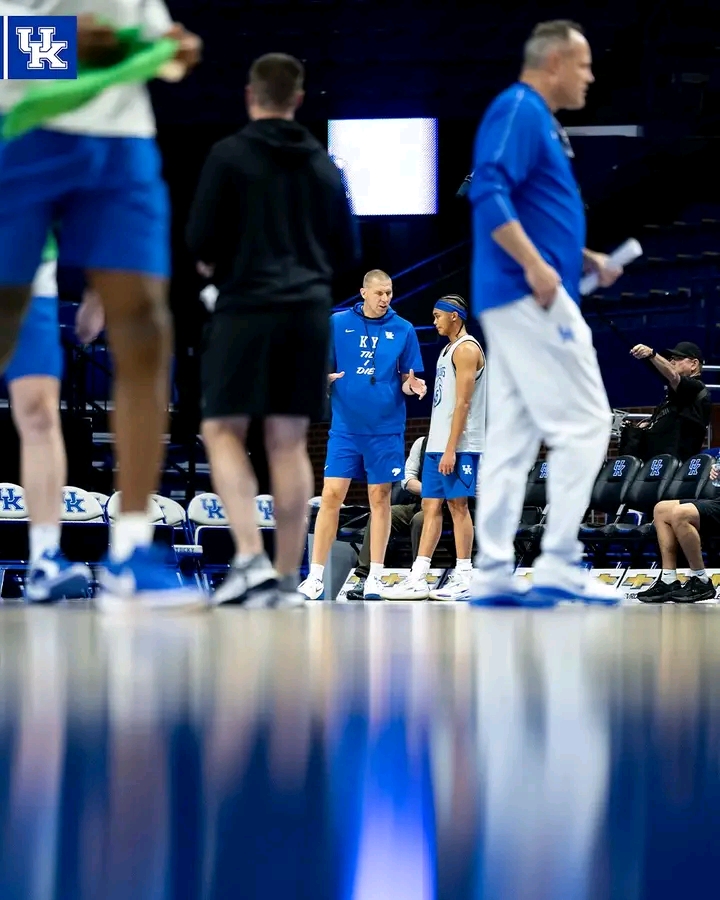Kentucky’s loss to Georgetown wasn’t just a preseason stumble — it was a reality check. Mark Pope saw exactly what was wrong, and he’s been on a mission to fix it ever since. Practice intensity is up, roles are being reshaped, and even with injuries hitting the backcourt, the Wildcats are finding their rhythm again. Let’s break down what’s really happening inside Kentucky’s gym.
—
When Kentucky fell to Georgetown, Mark Pope didn’t sugarcoat the loss. The problem wasn’t effort — it was execution and defensive communication. “We’ve got to be tougher and more connected,” Pope said afterward. “And that starts with me.” Since then, practices in Lexington have looked nothing like they did before that game.
Pope has pushed the team harder than ever, focusing on defensive rotations, rebounding, and pace. He’s also made one thing clear — energy is non-negotiable. Every drill now demands full effort and constant talking. The Wildcats are working to build chemistry fast, knowing that the season opener is right around the corner.
The challenge? Depth in the backcourt has taken a hit. Jaland Lowe and Denzel Aberdeen are both dealing with injuries, limiting their participation in practice. Pope called their absences “frustrating but fixable,” adding that the team is using the time to strengthen rotations and prepare others to step up.
That’s where veterans like Otega Oweh and Mo Dioubate have taken charge. Both have been praised for their leadership and intensity, setting the tone for younger players. Malachi Moreno, the Kentucky native, has become a vocal presence on defense, while Jayden Quaintance continues to impress with his raw energy and athleticism.
In the frontcourt, Brandon Garrison has anchored Kentucky’s defense, cleaning up mistakes and controlling the glass. Behind him, Reece Potter and Andrija Jelavic are gaining valuable reps in practice, focusing on rim protection and floor spacing. Trent Noah and Braydon Hawthorne have been quietly earning more trust, bringing shooting and energy from the wings.
Conditioning has also become a top priority. Pope’s practices now simulate game-speed exhaustion — short bursts of offense followed by defensive recovery drills. “You can’t fake toughness,” one staff member said. “They’re learning to push through.”
It’s clear that something shifted after the Georgetown game. Kentucky may still be dealing with injuries, but the culture inside the program looks completely different — louder, tougher, and more connected.
The Wildcats might have taken a loss that night, but if Pope’s new approach holds, it could be the game that sparked a season-defining turnaround.

